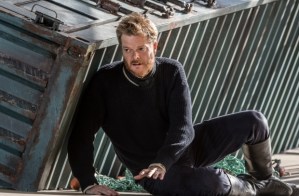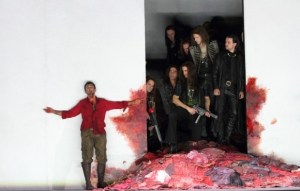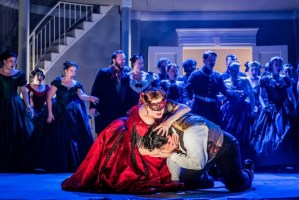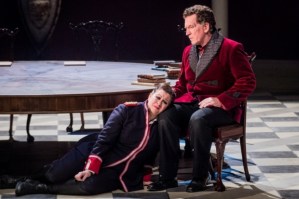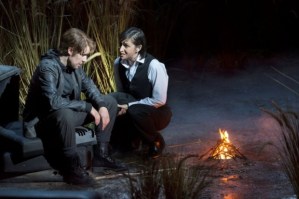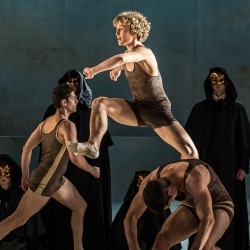Review: Idomeneo (Buxton Opera House)
Mozart’s classical opera in a ponderous production in Buxton’s bijou opera house
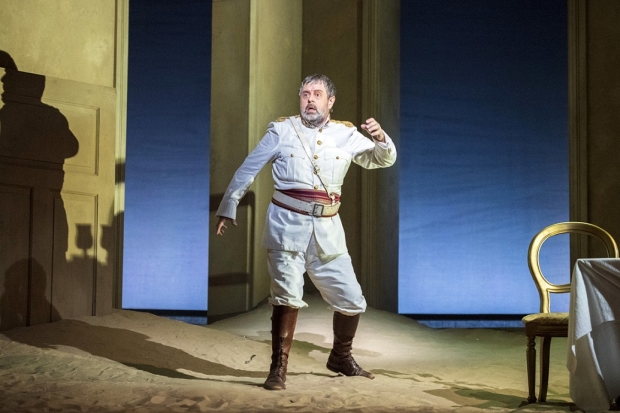
© Richard Hubert Smith
No opera by Mozart should ever bore an audience – not even Idomeneo, an opera seria that can sear the emotions when it's well staged, played and sung. Alas, the Buxton International Opera Festival's new account is drearily mounted and indifferently performed in a production by Stephen Medcalf that seems to have been driven less by inspiration than obligation. There's a sense of ‘Let's get the bloody thing done' about the whole enterprise.
The walls of Isabella Bywater's vanilla-coloured set are broken by three open windows, two doorways and an indoor sand dune (shades of Garsington's 2016 production). At one point a dining table and chairs are brought on, for the sole purpose of allowing Idomeneo (Paul Nilon) to show his rage by trashing the crockery and, you've guessed it, chucking a few chairs on the floor. (Five in all, since connoisseurs of this wretched opera cliché always ask.)
Nilon is a powerful stage animal, always gripping to watch and musically reliable to a fault. It is not his fault that the voice has grown too weighty for a role that calls for agility and beauty, nor is he responsible for the hapless direction that requires him to pull ridiculous faces as he belches the opera's sea monster out from his guts – one of several moments when his dignified presence is undermined.
Idomeneo relates the tale of a king who is rescued from drowning when he promises the sea god Neptune that he'll sacrifice the first living person he meet on dry land. As is the way of things in classical literature, that turns out to be his own son and heir, Idamante.
One fundamental problem with this opera is the surfeit of female voices. Mozart himself recognised this as a concern and redrafted Idamante as a tenor role; here, though, he is sung by a mezzo-soprano, Heather Lowe. Since many scenes involve just him with the princesses Ilia (Rebecca Bottone) and Elettra (Madeleine Pierard), the casting of three singers with different registers but similar timbres inevitably leads to monotony.
Pierard's role is the meatiest of them all, but she spends an inordinate amount of Act 3 with her head stuck to a wall – either in a mega-strop or because she's checking for woodworm. (Wall-hugging is second only to chair-throwing in opera's list of redundant stage acts.) This is a shame because in other respects the New Zealand-born soprano walks away with the show's Golden Boot for kicking ass.
A chorus trained by Matthew Morley sings lustily but is forced to lumber about in a production that troops them on to sing, then troops them off again. The opera has been updated, sort of – we know as much because the men carry automatic weapons – but nothing is made of it. Nicholas Kok conducts a vigorous account from a pit band drawn from the Northern Chamber Orchestra and does his best to carry Mozart's flame aloft, but the odds are stacked against him.
It's a long opera, even with abridgements (the role of Arbace, Idomeneo's confidant, has been cut to shreds), and it can seem even longer because although the hand of death is never far away it doesn't actually strike. In a production as dull as this one you can't help feeling that Neptune's cruellest act was to let everybody live happily ever after.


